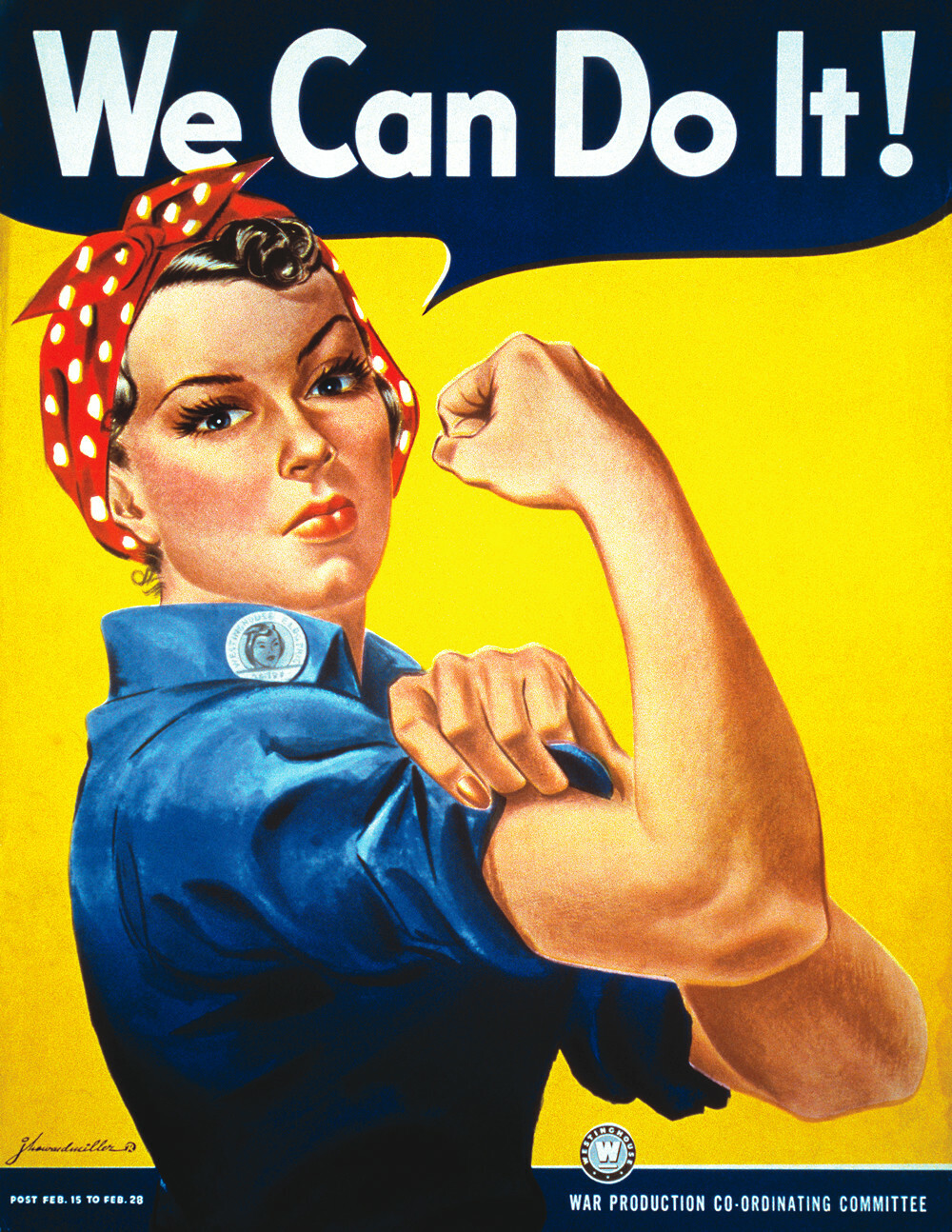By Oxana Bristowe
Gender Diversity. It's all over the news again: Insufficient women on the Boards of public companies. Men apparently being paid more than women for doing the same jobs...
But is it time to have a rather different conversation about gender diversity on Boards and in corporate executive management? Are we focusing too much upon external factors and not paying enough attention to the individual?
Why am I qualified to comment on this subject? One reason is that I am a woman. Another reason is that I have spent the past 15 years in the executive search industry working on appointments to Board and senior executive level positions for public and private companies operating throughout the world. In addition I have a very extensive network of women who are high achievers - senior corporate managers, Non-Executive Directors and business owners. I am also an entrepreneur, having my own company which I started two years ago with the goal of helping companies and individuals to become winners.
When gender diversity on boards was highlighted in the UK (Lord Davies report: "Women on Boards" 2011) I thought Norway's quota approach might offer a solution. Quotas would, it seemed, lead to a tipping-point at which a permanent shift in corporate culture, attitudes and values would be reached. The gender diversity issue would then fade into history as senior executive and Board roles were broadly balanced between women and men.
Inspired by that vision of the future I began to actively reach out to senior women and corporate clients with a view to having conversations about how I might help them achieve what would lead to change in senior management culture. And based upon independent research, company performances would improve. The government, the business community, experts and advisors - and of course women - were all saying the same thing: address the numerical imbalance using quotas, exhortation or carrot-and-stick, and the problem would be fixed. It certainly seemed that a very great injustice had been done to women, who were being denied a significant role and influence at the top level of business life. The lower percentage of women at the top of companies was generally assumed to be rooted in a biased culture of leadership, which seemingly consisted of men who were operating as if boardrooms were men-only clubs from some bygone era. Those men, it appeared, were somehow conspiring to keep women out of the boardroom. I think many articles and opinions on the subject still consciously or unconsciously reflect this "club" model of how boardrooms operate. I attended numerous female executive networking events and forums and became a mentor to one professional industry-specific organisation which is focused upon advancing the role of women. I wanted to contribute to and understand the issue in more depth.

Following several years of active and extensive participation in the subject my understanding of the situation has developed and my current thoughts on the subject are as follows.
I have not seen any evidence of direct bias from any of my corporate clients toward female candidates. I have never once experienced a situation when a client would indicate to me, either directly or indirectly, that they did not seek to have women included on a candidate shortlist for Board and senior management positions. I have worked on over 200 senior leadership appointments and my own conscience is clear because my team and myself made every possible effort to reach out to women with relevant management, functional expertise and broader experience on every single project.
As an example I was recently involved in appointing 10 country Chief Financial Officers across Africa for a large international client and we had to search worldwide for candidates who would be suitable for those positions. Our client appointed 9 male CFOs and 1 female CFO.
And in my past projects I always did everything I could to consider women for Non-Executive or Executive Director positions. If we found strong female candidates who were interested and available for any Chairman, Non-Executive and Executive Director positions the attitude of our clients can be described as "great - we want to appoint the best person for the job".
The message that I am trying to convey is that I have simply not come across biased behaviour from my clients during the fifteen years in which I have been working at senior international level. I suspect this is quite possibly the experience of other executive search firms and consultants. If this was not the case - and we in executive search saw evidence of obvious discrimination or biased attitudes against women - we would definitely say so and we would surely see articles about this appearing in the media. The popular image is perhaps that "someone is keeping women out of the boardroom" but that "someone" appears, in my experience, to be oddly invisible. One looks for them, but they aren't to be found. A shocking thought - perhaps they do not exist?

I am very fortunate that throughout my career. I have come across many brilliant women - competent, accomplished, successful and driven. These senior women did not want to have any conversations about having any gender preferences with regard to appointments to any senior positions - Chairman, Non-Executive Director, Executive Director or senior management roles. In fact most of them told me - and very directly - that they were not interested in working for any companies which might be seeking to appoint women into such positions merely because the government or society was demanding that this should be done. These senior women understand their worth, they have strong values, they know what they can do and they know with whom they want to work.
So, based upon my own extensive experience and active involvement in the topic I really do not think that the “glass ceiling” exists in the way it is popularly presented. My clients did not demonstrate any such bias and senior women did not complain to me about being prevented from moving up the career ladder and achieving their career goals. But the fact remains that the overall percentage of women in senior corporate positions is not high, and in some sectors it is very low.
I want to make it clear that I am not claiming that biased company cultures - in which sexism, bullying and harassment of women takes place - do not exist. Of course they do. In fact when such attitudes appear both women and men experience it. I have had conversations with executive men who told me about their experiences working for bosses who were bullies and who had created corporate cultures whose values they did not share. So it seems to me that where we find organisations with leadership which creates or tolerates poor culture it negatively affects everybody.
On that basis what - exactly - is the problem?
I believe the root cause of the problem is simply not having enough women who are in, or who see themselves potentially being in, the management positions which lead to senior executive roles and from there onto the Board. It seems to me that the answer is to be found in the numbers: there are just not enough women entering the senior management positions which are the platform on which to be trained, coached and developed. The pool is simply not large enough. The famous English expression is "you can't make bricks without straw" - and you cannot appoint women into the most senior positions if there aren't any women to promote into those positions. Addressing that issue seems, to me, to be at the heart of it.
Large organisations historically put a great deal of emphasis upon career development, training, succession planning and so on. Perhaps with today's more fluid workforce, with faster change and people typically starting their management careers rather later in life than in decades past, the responsibility falls more upon the individual to take charge of his or her career? And many - or more probably most - people do not know how to do that. So from that perspective it becomes an issue of how women and men see themselves and what they believe is, and is not, possible for them - and how they should direct their careers.
I have increasingly come to these conclusions since I became actively involved in coaching as well as in executive search. Helping people to break through their own limitations was at the heart of it: I began to put my own experience together with the information I had gathered from my career-focused conversations with many women. I have already mentioned that those very successful senior women with whom I have discussed these issues do not see any biases, imposed "glass ceilings" or other external causes which are leading to underrepresentation of women in senior roles.
But those women appear to have been very clear upon their goals and they pursued them with great determination. There is another category of women in middle management and in more junior management positions who have certainly been complaining to me about experiencing bullying and biased attitudes from their male colleagues and bosses. I believe what they tell me and there are certainly cases where bullying of women - and also of men - is part of the culture. Based upon my own experience and my values such conduct is totally unacceptable, it is harmful to the well-being of people and it is ultimately a losing approach from a business point of view.
What do I usually say to women who bring this bullying issue to me? That they have a choice. What I also notice through my mentoring and coaching work is that women tend to focus upon external factors which are holding them back instead of taking a more proactive approach to their personal and professional development. They are not to blame in taking that view because most organisations and training firms tend to focus upon strategies and tactics of how to address external issues in order to achieve the goal. But I know that until a woman addresses her inner conflicts, addresses the limiting beliefs which she holds about herself and about the external world and regains her "inner power", those external factors will not greatly shift.
I truly believe that companies and leaders who genuinely care about improving diversity at all levels of their organisations including the top Executive and Board positions need to focus their efforts on helping women (and men) to become empowered, confident and authentic. This is where personal coaching is a tremendously powerful tool which creates the shifts, breakthroughs and moments of realisation which can help to unleash creativity, energy and motivation to achieve big goals.
Conclusions and Solutions
In summary I think we are currently addressing perhaps 20% of the task of removing barriers which prevent more women reaching senior roles. But we need to focus much more upon the other 80%: management development, leadership training, coaching and mentoring, helping women (and importantly also men) to better learn management competencies. Yet the biggest impact will be by helping each individual who is aspiring to be a leader, a manager or the head of a corporation to learn the secrets of success which come from inside themselves rather than from outside. This can, in the context of a woman who believes "my goal is to make a difference, to be the best I can, to pursue my ambitions" be a combined effort between herself and a company.
To corporate leaders I would recommend the provision of external long-term career development coaching to women who demonstrate the ability, ambition and desire to grow their careers.
To women I would say; please, take full control of your career and seek out the support which will lead you onward to great things. And if you are not getting this support in your current organisation then pay for your own coaching. I did - and I know just how powerful the results can be. And that is the experience of my coaching clients who came to me for help because they were stuck. There is nothing more exhilarating than seeing how you are shifting, feeling a sense of release and liberation from the things which were holding you back, from creating a real vision for your career and life, from feeling empowered and seeing how your external world is transforming as you are transforming your inner way of thinking, feeling and doing!

So if we want to make a great improvement in gender diversity we need to encourage women to take responsibility for their own growth and development. And we need to encourage men too: they will see how they can be part of this process. If people are supported by their current employers that's great. But otherwise they can help themselves and aim for transformation of their lives and careers.
I truly believe that if we change the way we look at gender diversity by empowering women from within and helping men in management and leadership positions to consciously and deliberately instil good values in their organisations we can make a huge difference in the world.
Oxana Bristowe
We offer a free 45 minute complimentary call - please contact us to discuss how you can shift and empower yourself to achieve success - contact@oxanabristowe.com
Please visit www.oxanabristowe.com for more information on our services in executive search, post-appointment and executive career coaching.
